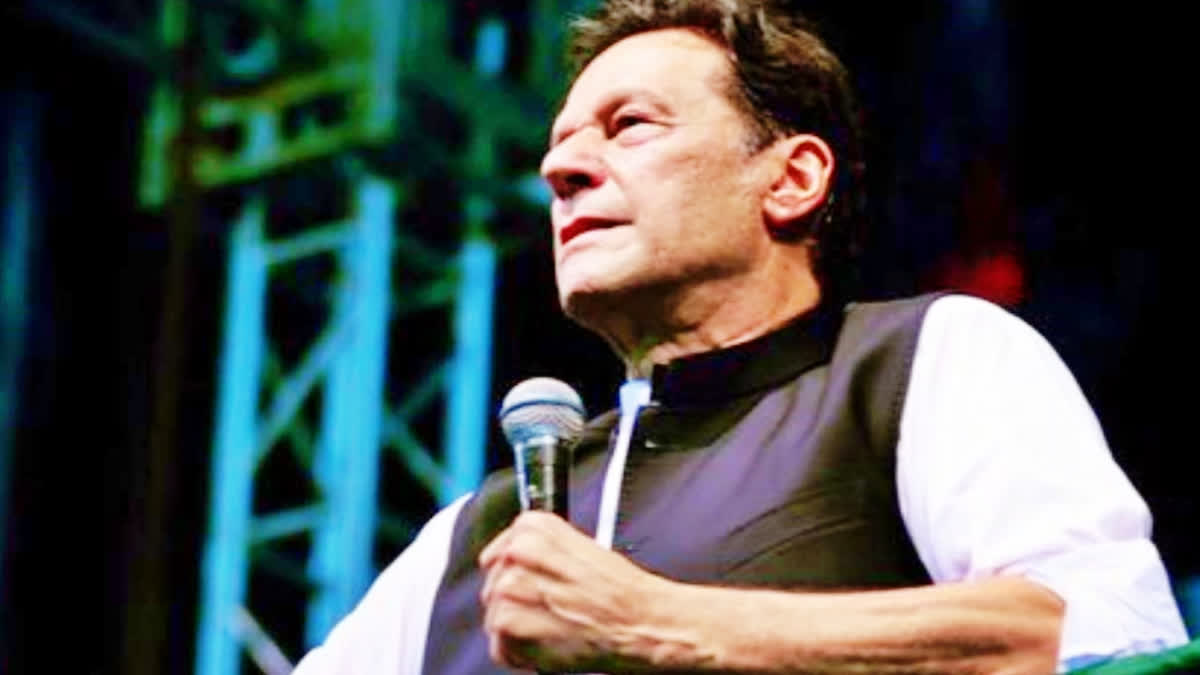Hyderabad:Sending leaders to the gallows, exiling them to death, locking them up in jails, and detaining them in their houses has been a feature of Pakistan's history, and it seems to be a never-ending phenomenon. The latest development occurred in the Islamabad High Court on Tuesday when former Prime Minister of Pakistan, Imran Khan, was to appear before the court in two of the many cases. He was arrested, dragged, and whisked away in a combat vehicle like a fugitive by security forces in riot gear.
The game of thrones in the country has begun, with elections scheduled for the last quarter of this year. The present dispensation will make every effort to keep their powerful enemy, the head of the main political party Pakistan Tehreek Insaaf (PTI), at bay and make sure he does not contest the upcoming elections. Conviction in a case or cases, including Toshkhana, would disqualify him, and he would not be able to fight elections for which the current regime has probably arrested the former premier of the country. Anticipating this, Imran's party pushed for early polls, which were thwarted due to a tiff between the Supreme Court of Pakistan and the government.
Khan did get a major relief from Pakistan's Supreme Court which, on Thursday, declared the former prime minister's arrest "illegal"and ordered his immediate release after he was produced before a bench on its orders. The bench, while hearing the Pakistan Tehreek-e-Insaf chairman's plea against his arrest in the Al-Qadir Trust case, expressed anger at the way he was taken into custody by paramilitary Rangers and ordered authorities to produce him before it. The bench had directed the National Accountability Bureau (NAB) to produce the 70-year-old leader Khan by 4:30 pm (local time) when the court would reconvene. The apex court declared that Khan's arrest was "illegal" and of no consequence and ordered that he should be set free.
As his supporters await his release after the court order, Imran Khan must have clearly understood by now that he is not more the blue-eyed boy of Pakistan's army since they have sided with the present dispensation. Even the Afghanistan Taliban seems to have changed their loyalties and turned their back on Imran, who was once their savior and admirer, particularly in the aftermath of their Afghanistan takeover. It was Imran's government that proposed solutions to the Chinese government over the Uygar crisis, which had been an eyesore for the communist country. China praises Pakistan's army while making no remarks for or against Imran at a time when he needs them the most. The Chinese position over the latest developments demonstrates that silence may sometimes be used to avoid active participation.
China understands that whatever is happening in Pakistan is not new and that this situation has the potential to snowball into an unimaginable scenario. There have been many such incidents in the past where people who held top offices have been imprisoned and even sentenced to death, like Zulfikar Ali Bhutto, the former Prime Minister of Pakistan, for ordering an assassination plan against Ahmad Raza Khan, a staunch critic of the then-Bhutto government. His father, Mohammad Ahmed Khan Kasuri, was killed in the covert attack aimed at killing Raza. Ahmad Raza had a narrow escape in the assassination attempt.
